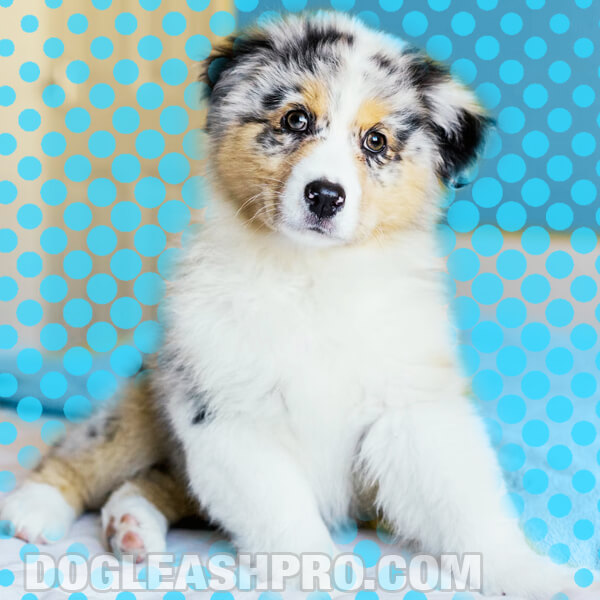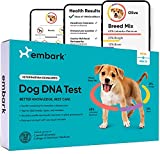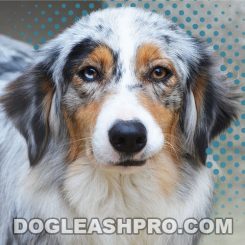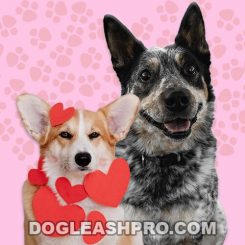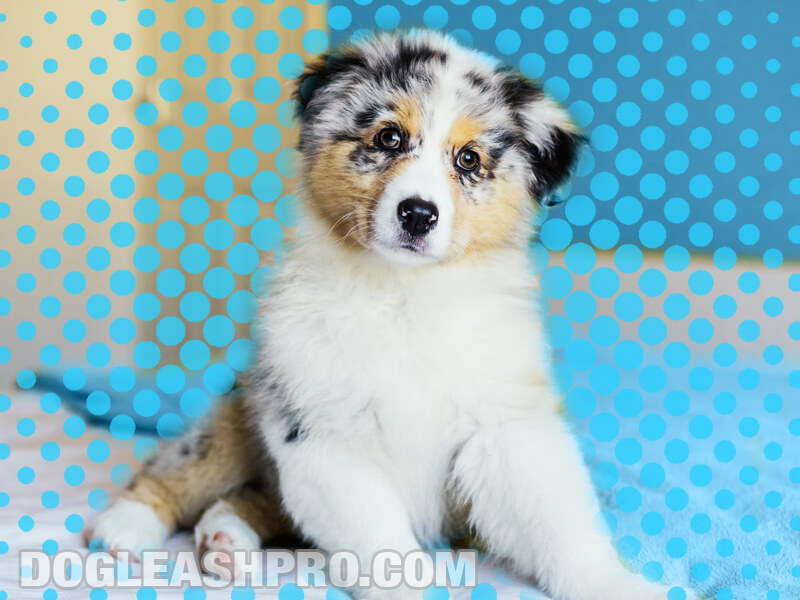
If you’re looking for an intelligent dog that’s also hardworking, protective, loyal, and energetic, could the Australian Shepherd Blue Heeler Mix be the best canine companion for you?
Also known as Texas Heeler, this hybrid dog goes by several names. In this comprehensive guide, we’ll cover all the different names for this mixed dog breed. We’ll also discuss everything you need to know about the Blue Heeler Australian Shepherd Mix, including common health issues, lifespan, exercise requirements, dietary needs, temperament, and whether they make great family pets.
Let’s first start with a breed overview of the Australian Shepherd Blue Heeler Mix.
Similar mixed dog breed: Blue Heeler Rat Terrier Mix (Complete Guide)
Table of Contents
Australian Shepherd Blue Heeler Mix: Breed overview
| Australian Shepherd Australian Cattle Dog Blue Heeler Mix | |
| Other Names | Queensland Australian Shepherd Mix, Australian Shepherd and Cattle Dog Mix, Australian Shepherd Australian Cattle Dog Mix, Australian Blue Heeler Shepherd, Queensland Heeler Australian Shepherd Mix, Aussie Cattle Mix, Texas Heeler |
| Purity | Crossbred |
| Purpose | Herding |
| AKC Recognition | No |
| Size | Medium |
| Height | 17-22 inches |
| Weight | 25-50 pounds |
| Colors | Black, chocolate, grey, fawn, blue, red, bicolor, tricolor, merle |
| Child friendliness | Moderate |
| Canine friendliness | Moderate |
| Training difficulty | Low |
| Grooming upkeep | Easy |
| Exercise needs | Very High |
| Health | Good |
| Lifespan | 12-15 years |
| Puppy cost | $200-$700 |
What is a Blue Heeler and Australian Shepherd Mix?
An Australian Shepherd Queensland Heeler Mix is a cross of two herding breeds — the Australian Shepherd and the Blue Heeler. The mix is also called Blue Heeler Mix Australian Shepherd or Australian Cattle Dog Blue Heeler & Australian Shepherd Mix.
These pups are a Texan creation and were first bred in the 1970s. That’s why they also carry the Texas Heeler moniker.
Both the Australian Shepherd and the Blue Heeler have excellent working abilities, so an Australian Shepherd Mixed with a Blue Heeler also carries strong herding instincts.
RECOMMENDED: Catahoula Blue Heeler Mix (Complete Guide)
Australian Shepherd Blue Heeler Mix: Parent breeds
The excellent herding ability, intelligence, loyalty, and independence are traits that the Australian Blue Heeler Mix inherits from his parents. To learn more about Blue Heeler Australian Shepherd dog Mix, let’s go through the histories of its parents.
Australian Shepherd history
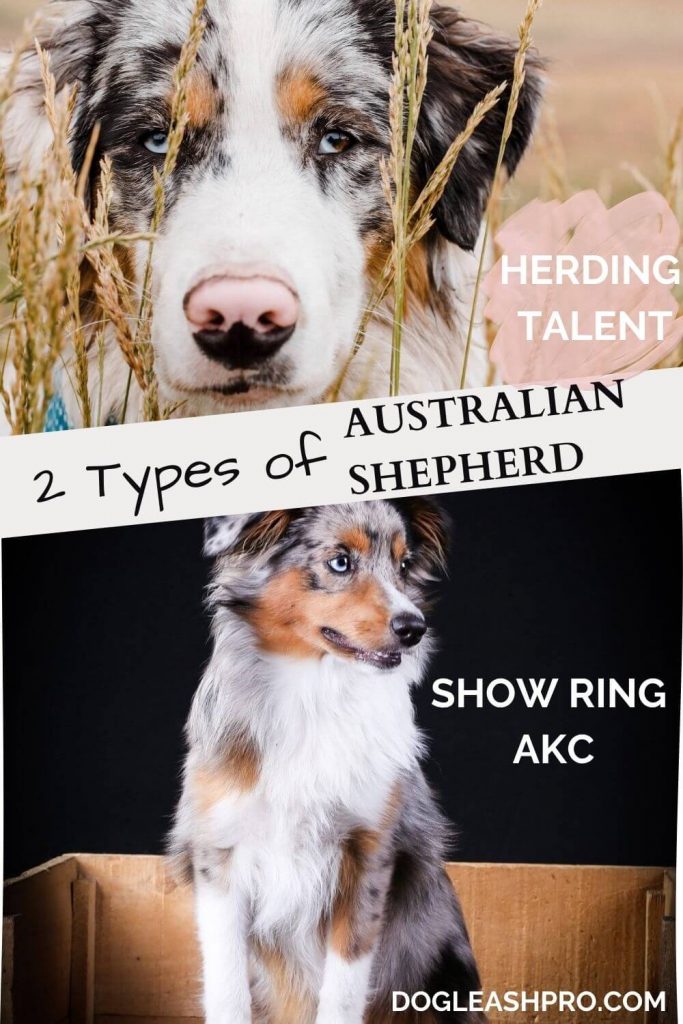
The Australian Shepherd is a medium-sized breed originally bred in the United States for sheep herding. This breed is known for his intelligence, agility, and stamina.
Also known as cowboy dogs, Aussies were once the favorite breed of the Basque people who traveled to the U.S. to work as shepherds.
Despite the “Australian” in their name, they hail from California while their ancestry goes back to the English Shepherd. Today, these agile and active canines are used extensively as working dogs in various capacities, including search and rescue, narcotics detection, and therapy work.
Blue Heeler history
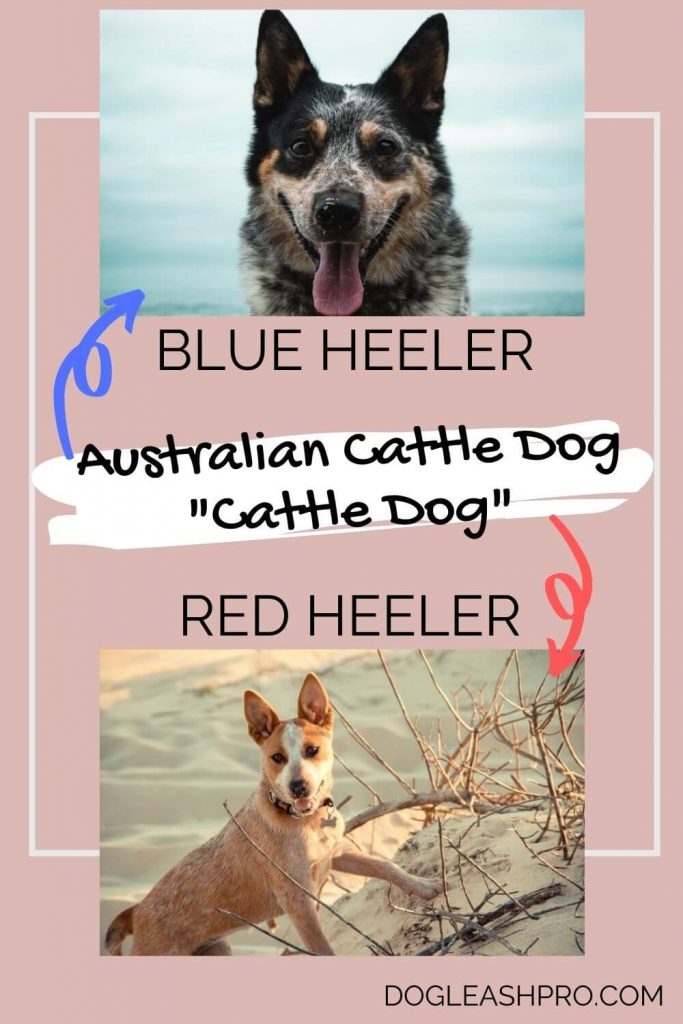
The Blue Heeler is also a herding pooch, specifically bred in Australia to herd cattle. This breed is known for his speed, strength, and independent spirit.
The Blue Heeler was developed in the 19th century by crossing the Australian Dingo with various collies and other herding breeds. The goal was to create a high-energy herder with the ability to withstand the harsh Australian climate.
The resulting breed was an independent, hardworking, and tenacious canine that quickly became popular with Australian ranchers. Today, Blue Heelers are still used as working dogs on farms and ranches, but they also make excellent family pets.
Check out: Blue Heeler Husky Mix (Ausky Complete Guide)
Australian Shepherd Blue Heeler Mix info
The Australian Shepherd & Australian Cattle Dog / Blue Heeler Mix is an excellent herding pup, just like his parents. These laser-focused, energetic, and intelligent canines can herd cattle and sheep equally well.
They can also make brilliant family pets, provided they get enough exercise.
Unfortunately, due to his mixed ancestry, the Australian Shepherd Heeler Dog doesn’t carry AKC recognition; however, the following American registries do recognize them:
- Dog Registry of America (dogpapers.com)
- American Canine Hybrid Club (achclub.com)
- U.S. Service and Support Animal Registry (usserviceanimals.org)
You may be interested in: Blue Heeler Jack Russell Mix (Complete Guide)
Australian Shepherd vs Blue Heeler
The main difference between Australian Shepherd and Blue Heeler is that the Australian Shepherd was bred in the United States while the Blue Heeler was produced in Australia.
They also have different coats, with the Australian Cattle Dog (ACD) or Blue Heeler having finer and shorter hair than the Aussie Shepherd’s thick and fluffy one.
The two breeds are almost equally matched in terms of temperament, working ability, energy level, and stamina.
Texas Heeler vs Blue Heeler
The main difference between Texas Heeler and Blue Heeler is that the Texas Heeler is a medium to large breed, while the Blue Heeler is a medium-sized canine.
The Texas Heeler is simply another name for the mix between the Australian Cattle Dog and the Australian Shepherd. These pups inherit the best traits of both parents, making them intelligent, hardworking, and tenacious dogs.
The two breeds are very similar in terms of temperament and working ability. Both pups make excellent working dogs and family pets.
Texas Heeler Australian Shepherd Mix
The Texas Heeler is a cross between the Australian Cattle Dog and the Australian Shepherd. An Australian Shepherd Texas Heeler Mix is simply a Texas Heeler backcrossed with an Australian Shepherd to enhance certain Aussie Shepherd qualities, such as the fluffy coat and blue eyes.
Australian Shepherd Blue Heeler Mix traits
Mixing the Australian Shepherd with Blue Heeler will result in a pup who is just as smart and hardworking as either parent. These furballs are known for their agility, focus, and stamina. They also make great family pets as long as they get to spend their daily energy reserves.
The Australian Shepherd and Queensland Heeler Mix also inherit his parents’ loyalty and protectiveness, making him a great guard dog. They get along well with kids of all ages and other pets, provided that their owner socializes them early and properly.
Australian Shepherd Mix Blue Heeler physical appearance
The Australian Cattle Dog/Blue Heeler Australian Shepherd Mix’s physical appearance will depend on which parent he takes after more.
Let’s read about the physical traits of each parent to see what to expect with an Australian Cattle Dog mixed with Australian Shepherd.
Australian Shepherd features
The Australian Shepherd is a medium-large, muscular pooch with a thick coat. This pup has a longer muzzle than the Blue Heeler, with beautiful blue eyes and small floppy ears. His tail is naturally docked, and his coat carries various colors and patterns, including black, blue merle, red, tan, and white.
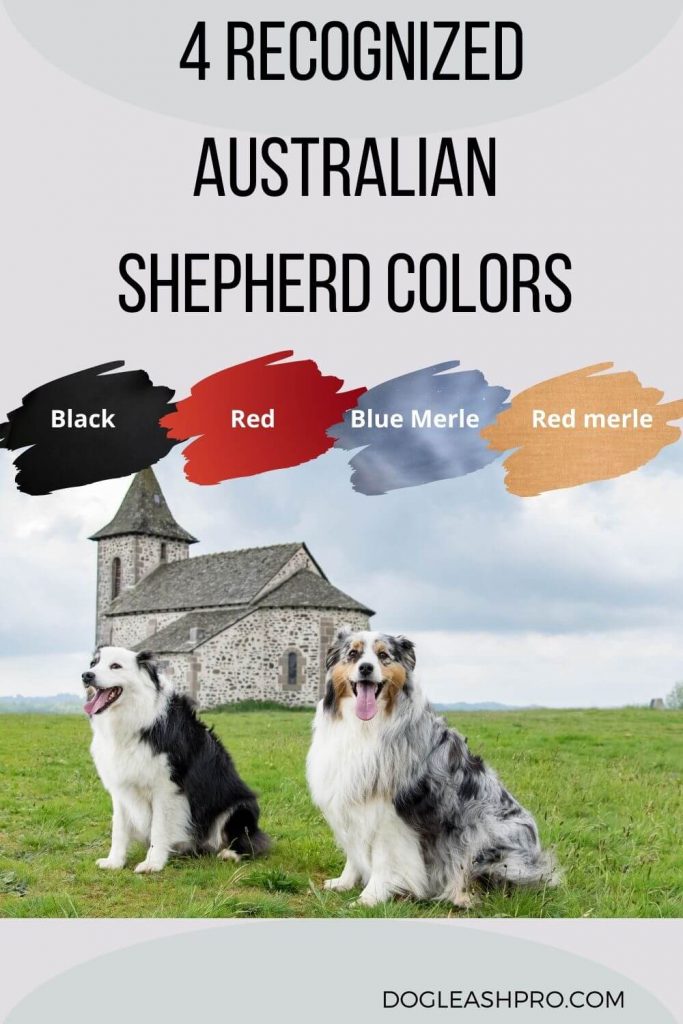
Blue Heeler features
The Blue Heeler is a medium-sized, muscular canine with a shorter coat and muzzle than the Australian Shepherd. He has regular dark brown eyes and large pointy ears. His tail is long and bushy, and he carries coat colors and patterns similar to the Aussie Shepherd.
You may also like: Blue Heeler Chihuahua Mix! Complete Guide
Blue Heeler Australian Shepherd Mix size and height
If you’re wondering how big do Australian Shepherd Blue Heeler Mix get, the answer is that they are medium to large-sized dogs, depending on which parent they take after more.
Here’s how big a Blue Heeler Aussie Mix full-grown gets:
Full-grown Australian Shepherd Blue Heeler Mix size
| Male | Female | |
| Size Group | Medium-large | Medium |
| Height | 18-22 inches | 17-19 inches |
Australian Shepherd Blue Heeler Mix weight
There’s a significant variation between the Cattle Dog Australian Shepherd Mix weight due to the difference between their parent’s size.
Here’s how much they weigh:
Cattle Dog Australian Shepherd Mix weight
| Male | Female | |
| Weight | 30-50 pounds | 25-40 pounds |
Mini Aussie Blue Heeler Mix
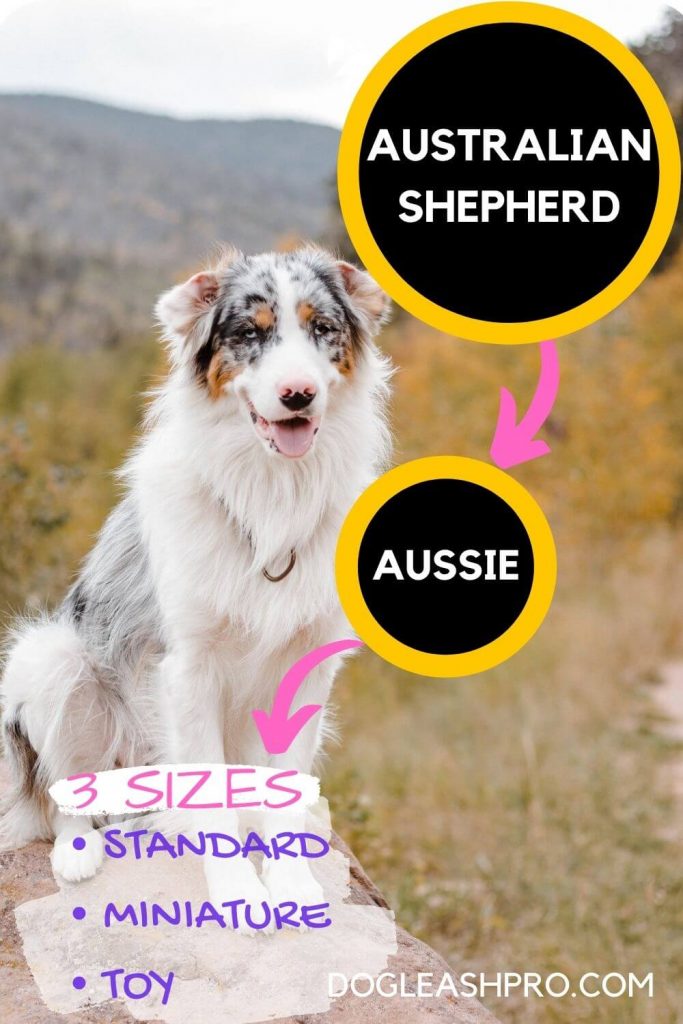
As the name implies, the Blue Heeler Mini Aussie Mix is a Mini Australian Shepherd mixed with Blue Heeler. These pups are a few inches smaller and weigh slightly less than the average Blue Heeler Aussie Mix. The adorable Miniature Australian Shepherd Blue Heeler Mix is better suited to apartment living and is more affectionate than his regular-sized counterpart.
Did you know? Blue Heelers also come in mini sizes. Check out Mini Blue Heeler (Complete Guide) to learn more!
Australian Shepherd and Blue Heeler Mix coat colors and types
The hybrid’s coat is a mix of Australian Shepherd & Australian Cattle Dog coats. He may have the shorter, finer coat of the ACD or the thick, fluffy coat of the Aussie Shepherd.
The Australian Shepherd Blue Heeler Mix coloration may also be a mix of his parents’ colors. They come in blue, red, grey, white, tan, and black shades.
Coat patterns include bicolor, tricolor, merle, mottled, and speckled.
Blue Heeler Australian Shepherd short hair
Although the mix is genetically half Blue Heeler half Australian Shepherd, he may be more similar to one parent than the other. An Australian Shepherd and Australian Cattle Dog Mix that inherits the ACD’s coat will have shorter and finer hair.
Blue merle Australian Shepherd Blue Heeler
A Blue merle Australian Shepherd Blue Heeler Mix has a striking coat that carries diluted patches of blue and white all over his body.
Red merle Australian Shepherd Blue Heeler Mix
A red merle Australian Shepherd Blue Heeler Mix is similar to the Blue Heeler Blue Merle Aussie Mix, except he carries diluted patches of red and white all over his body.
Australian Shepherd Blue Heeler Mix personality
The American Blue Heeler Australian Shepherd will have the loyal, protective, and energetic personality of the Australian Shepherd and the hardworking, determined nature of the Blue Heeler.
The Australian Shepherd Heeler is an excellent choice for a working dog, therapy dog, herder, or family protector.
Australian Shepherd Blue Heeler Mix temperament
The Blue Heeler and Aussie Mix temperament will be just as good as the Australian Shepherd or the Blue Heeler. These furballs are intelligent, hardworking, and determined.
The Blue Heeler Australian Shepherd cross is tolerant of children. He doesn’t bark unnecessarily and doesn’t show aggression unless he senses a threat.
Read also: Cowboy Corgi (Complete Guide)
Does Australian Shepherd Mixed Blue Heeler make great family pets?
Like the Blue Heeler and Australian Shepherd, the Blue Heeler Aussie Mix is excellent for individuals and families alike, provided they get enough space to run and play.
They’re tolerant of other canines, but their herding instincts may tempt them to nip at the heels of small children and other animals. Owners should train them early to eliminate the habit.
Are Australian Shepherd Blue Heeler Mixes aggressive?
The Australian Shepherd Blue Heeler dog doesn’t trust strangers or canines easily, but that doesn’t lead to aggression if he is adequately socialized. If anything, that habit makes him a better guard dog.
Their nipping practice may also come off as aggression, and it may become a problem with time. So, owners should “nip” it in the bud through early training.
Do Blue Heeler and Australian Shepherd Mix bark a lot?
Like most herding canines, the Cattle Dog Aussie Mix only barks when there is a reason. They’d bark at cattle or sheep falling out of line. They’d also bark at a neighbor, visitor, delivery person, or any unknown animal, thinking of them as potential intruders or threats.
Pent-up energy and poor socialization can lead to excessive barking; however, that goes for any breed and isn’t specific to the Aussie and Blue Heeler Mix.
Australian Shepherd Blue Heeler Mix training
The Australian Shepherd Blue Heeler Mix is intelligent and eager to please, so training a Blue Heeler Australian Shepherd Mix should be a breeze.
They will excel in any activity that challenges their minds and bodies, such as agility, flyball, obedience, and herding.
Early socialization training is essential for the ACD/Aussie Mix as with any other canine. Without it, he may become hard to handle and potentially aggressive.
If you’re confused about how to train an Australian Shepherd Blue Heeler Mix, here are six types of training to give them.
1. Sit
The “sit” command is a tried and tested way to get your pup’s attention, and you can use it in various situations.
Want more information: How to Teach A Dog to Sit On Command
2. Down
The “down” command is a good way to get your pet’s attention, to calm them down, or as a cue to go to their bed or crate.
3. Come
The “come” command is a great way to recall your pooch when he’s off on an adventure. You can also use it to get your pet to come to you when you first start training him.
4. Stay
The “stay” command can help keep your pup in one spot, whether you’re putting their food bowl down or answering the door.
5. Leave it
The “leave it” command helps keep your pup from getting into trouble, whether it’s picking up food he shouldn’t eat or chewing on something he’s not supposed to.
6. Heel
The “heel” command is great at keeping your pup by your side when you’re out on a walk or hike. It can also help get him to follow you when you first start training him.
Blue Heeler Mix with Australian Shepherd exercise requirement
The Australian Cattle Dog and Australian Shepherd Mix is a high-energy pooch that needs plenty of exercises to stay healthy and happy. A good hour or two of vigorous exercise each day will keep him calm and well-behaved inside the home.
Instead of having a single 1 to 2-hour activity session, you’d need to break it up into 30 to 60 minute periods and take them out twice a day.
Simple walks won’t do for the Australian Cattle Dog Australian Shepherd Mix. To keep him from becoming bored, you’ll need to mix up his routine with agility, flyball, frisbee, or other activities.
Check out: Stuck on which dog toys to use during a game of catch or frisbee? Check out Best Indestructible Dog Toys (Reviews & Top Picks) to help you pick out the best one (or two) for your precious pooch.
This routine can be too much for most owners, so only get this pup if you’re prepared to put in the playtime.
Australian Shepherd Mixed with Blue Heeler living conditions
The Australian Shepherd Cattle Dog Mix thrives in a rural setting with plenty of room to run and play.
This mix isn’t made for life in an apartment. Keeping him cooped up may cause your Blue Heeler Australian Shepherd to become destructive, depressed, or both. Expect excessive barking, chewing, and nipping from this pup if he doesn’t get enough outdoor time or activity.
Blue Heeler Australian Shepherd Mix grooming and cleaning
The grooming needs of your Aussie Cattle Dog Mix may differ slightly depending on his coat type. Here’s an estimate of how often you’d need to groom them.
Australian Heeler Mix
| Grooming need | Frequency |
| Hair brushing | 1-2 times a week. |
| Bathing | Every 6-8 weeks. |
| Ear cleaning | Weekly. |
| Tooth cleaning | 2-3 times a week. |
| Haircutting | Not needed. |
| Nail trimming | Every 2-3 weeks. |
Australian Shepherd Blue Heeler Mix shedding
The Australian Shepherd Cattle Mix will shed moderately all year. Regular brushing will help keep the amount of Aussie Heeler Mix hair in your home to a minimum.
So, are Australian Shepherd Mix with Blue Heeler hypoallergenic?
No, the Heeler Aussie Mix is not hypoallergenic. The Blue Heeler and Australian Shepherd Mix is not for you if you’re allergic to dogs.
WANT MORE INFORMATION? Check out Are Australian Shepherds Hypoallergenic? 15 Tips To Reduce Dog Allergy Around Your Home
Australian Shepherd Blue Heeler Mix food and diet
A diet rich in protein and good fat is essential for the Australian Shepherd Australian Cattle Dog Mix. They need plenty of calories to fuel their high energy levels, so quality dry food is best.
It would also help if you fed them slow-acting carbs; this will keep their stomach functioning properly.
Blue Heeler Mixed With Australian Shepherd health problems
The Aussie Shepherd Heeler Mix is a relatively healthy breed, but there are some health conditions to be aware of.
If you’re interested to know what health problems your canine companions (mixed breed or not) are most susceptible to, we recommend that you consult with your dog’s breeder or vet. These two are great options.
That’s because your dog’s breeder knows your pup the best since he or she should know of any health issues the parent breeds have or are prone to.
If you’re not able to reach your vet or your dog’s breeder, you could use a dog DNA test.
I’ve personally used the Embark dog DNA tests on my two furry family members. I chose this one because it provides both breed identification and health detection.
The results came back relatively quickly – about two weeks later. Since I already knew the breed of my two dogs from my dog’s breeder, finding out that the breed ID results matched what my breeders told me was quite awesome.
The health detection results were very helpful. Knowing what health issues my two dogs are most susceptible to allows me to understand and take better care of them.
In the meantime, let’s get back to the health issues that commonly affect the Australian Shepherd Blue Heeler Mix. These include:
1. Eye problems
The beautiful eyes of the Australian Shepherd Blue Heeler Mix can be prone to several problems such as cataracts, progressive retinal atrophy, and Collie Eye Anomaly.
You may be interested in: How To Soften Dog Eye Boogers?
2. Hip dysplasia
Hip dysplasia is a hereditary condition that can cause lameness and pain in the hips and eventually lead to arthritis.
3. Allergies
Many Australian Shepherds are allergic to wheat, corn, and other grains, so it’s important to choose a food that doesn’t contain them.
Read also: Can Dogs Eat Graham Crackers?
4. Epilepsy
This condition can cause seizures in canines of any age. There is no known remedy, but medication can help control the seizures.
5. Cancer
Any breed can get cancer, and Australian Shepherds are no exception. Only early detection and treatment can ensure a positive outcome for the affected pooch.
6. Congenital deafness
Some Australian Shepherds are born deaf. If you’re considering this breed, be sure to have your fur buddy tested for hearing loss.
Australian Shepherd Blue Heeler Mix lifespan
The average lifespan of the Cattle Dog Australian Shepherd is 12 to 15 years. They’re not highly susceptible to the genetic issues plaguing their parents and enjoy a long, healthy life.
Australian Shepherd Blue Heeler Mix dog breeders
When looking for an Australian Shepherd Blue Heeler Mix puppy, be sure to find a well-reputed breeder who can provide health guarantees for the pup and clearance for both parents.
Always visit the breeder in person and avoid backyard breeders, unverifiable Craigslist ads, and pet shops.
Australian Shepherd Blue Heeler Mix puppies
The Aussie Blue Heeler Mix puppies should get training as soon as you bring them home. Start with basic obedience commands, then move on to more advanced tricks and activities.
You’ll also want to begin socialization early on so your Blue Heeler Aussie Mix puppy will be comfortable around other people and animals.
Blue Heeler Australian Shepherd Mix price
The Australian Shepherd Blue Heeler Mix price is around $200 to $700. Several factors affect the Blue Heeler Aussie Mix price, including age and breeder’s location.
Potential owners looking for a more affordable option may consider adoption or rescue. Let’s discuss where you can adopt or rescue a Blue Heeler Australian Shepherd Mix next.
Australian Shepherd Blue Heeler Mix for adoption
If you want to adopt an Australian Shepherd Heeler Mix, be sure to check out the following places:
Australian Shepherd Blue Heeler Mix rescue
To rescue a healthy Blue Heeler Australian Shepherd Mix, check out the following places:
Australian Shepherd Blue Heeler Mix puppies for sale
Finding Australian Shepherd and Blue Heeler Mix puppies for sale can be challenging. These pups have many titles, yet they don’t have many breeders.
A useful tip is to search using different names, like Queensland Heeler Shepherd Mix or Texas Heeler. You may also check out any of the following places.
Australian Shepherd and Blue Heeler Mix puppies for sale New Mexico
Town & Country Texas Heelers (texasheeler.com) are among the most renowned breeders for this mix in the area.
Australian Shepherd Blue Heeler Mix puppies for sale near me
Keystone Puppies (keystonepuppies.com) and Greenfield Puppies (greenfieldpuppies.com) are two excellent puppy-finding websites. You can also look up “Blue Heeler Australian Shepherd Mix puppies for sale near me” on the search engine of your choice.
Blue Heeler and Australian Shepherd Mix puppies for sale in Florida
Meet the pup of your dreams at CrossBow Cattle (crossbowcattle.com) in Jacksonville, Florida.
Blue Heeler Australian Shepherd Mix puppies for sale in Texas
ALT TexasHeeler (texasheelerpuppies.com) claims to be the top breeder of the Blue Heeler Australian Shepherd Mix in Texas.
Australian Shepherd Blue Heeler Mix for sale
If you’re looking for an adult Blue Heeler Mix with Australian Shepherd for sale, be sure to check out the resources below.
Blue Heeler and Australian Shepherd Mix for sale
Town & Country Texas Heelers (texasheeler.com) breed healthy and loving Blue Heeler Aussie Shepherd Mix.
Miniature Australian Shepherd Blue Heeler Mix for sale
These pups are rare, but you’ll find some of the most adorable ones at Mini Texas Heelers (minitexasheelers on Facebook).
Australian Shepherd Blue Heeler Mix for sale near me
You can search for this hybrid by looking up “Blue Heeler Australian Shepherd Mix for sale near me” or checking out Keystone Puppies (keystonepuppies.com) and Greenfield Puppies (greenfieldpuppies.com).
Dog breeds similar to Australian Shepherd Blue Heeler Mix
The Australian Cattle Dog Mix with Australian Shepherd isn’t the only breed with excellent herding and working skills. There are other breeds that share similar characteristics.
Some of the most popular herding breeds and mixes include:
- Border Collie.
- Australian Cattle Dog.
- Australian Shepherd.
- German Shepherd.
- Catahoula Cur.
Blue Heeler Australian Shepherd Mix dog: Pros and Cons
These pups come with some pros and cons; we’ve listed six here.
| Pros | Cons |
| The best breed for herding and working. | Not a snuggle-loving canine. |
| Patient and tolerant around kids. | May nip at children and other animals to herd them. |
| High energy allows lots of play time. | Needs active owners and lots of outdoor time. |
| Adaptable and intelligent. | Needs large living spaces. |
| Highly trainable. | Not easy to find. |
| Prefers a rural or country setting. | Doesn’t do well in cities. |
Is the Australian Shepherd Blue Heeler Mix right for me?
The Australian Shepherd Blue Heeler Mix is a great choice if you’re looking for an active, intelligent canine companion who will keep you on your toes. Whether you live alone or have a family with kids, this pup will fit right in and become a treasured member of your household.
However, they’re not the best breed for first-time dog owners, and their living space requirement may be too much for most. But they make wonderful companions if you’re up for the challenge.
Related Questions
Yes, Australian Shepherd Blue Heeler Mix are good dogs. They are extremely loyal, hardworking, intelligent, and protective. They make great family dogs although they do have natural herding instincts so they may nip at the heels of small children and small pets.
If you have small children and would still like to get an Australian Shepherd Blue Heeler Mix, then it’s crucial to train your pups early. You’ll want to start with behavioral and socialization training.
Australian Shepherd Blue Heeler Mixes are medium to large-sized dogs. They can be anywhere between 17 to 22 inches in height and weigh 25 to 50 pounds.
A Blue Heeler Australian Shepherd Mix goes by several names including Queensland Australian Shepherd Mix, Australian Shepherd and Cattle Dog Mix, Australian Shepherd Australian Cattle Dog Mix, Australian Blue Heeler Shepherd, Queensland Heeler Australian Shepherd Mix, Aussie Cattle Mix, and Texas Heeler.
DISCLAIMER: THIS WEBSITE DOES NOT PROVIDE MEDICAL ADVICE
The information, including but not limited to, text, graphics, images and other material contained on this website are for informational purposes only. No material on this site is intended to be a substitute for professional veterinary advice, diagnosis, or treatment. Always seek the advice of your veterinarian or other qualified health care provider with any questions you may have regarding a medical condition.
Resources:
https://www.ashgi.org/current-research-for-aussies
https://www.sciencedirect.com/topics/agricultural-and-biological-sciences/australian-cattle-dog

With over five years of specialized experience as an animal writer, my expertise lies in dog nutrition, health, behavior, grooming, and training. I am dedicated to delivering helpful and informative content that caters to the well-being of our furry friends. My primary goal is to empower pet owners with knowledge and ensure our canine companions thrive in health and happiness. In my free time, I love volunteering at local dog rescue centers.
